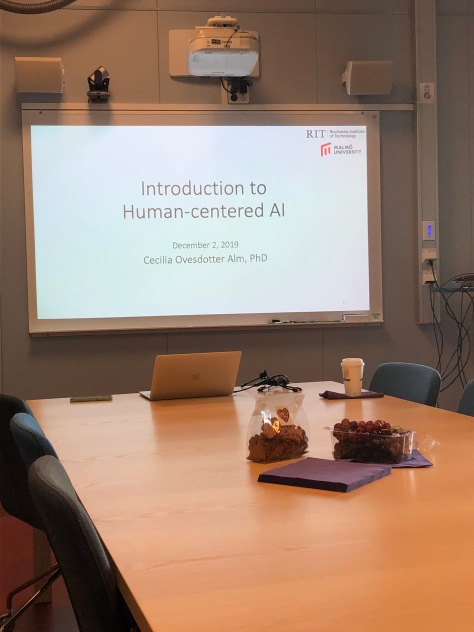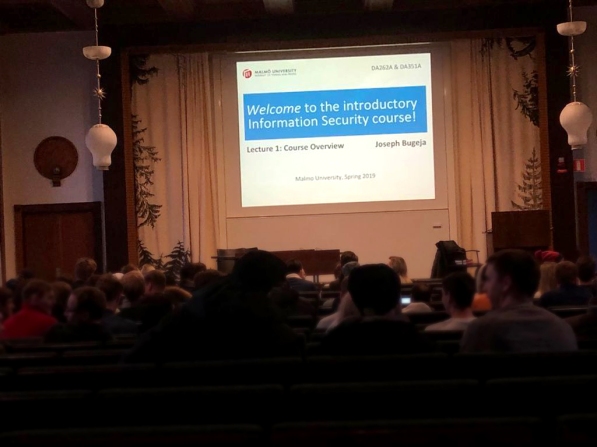Today, was the kick-off to the new academic (Spring) semester. I took the opportunity to present an overview of what is expected to be covered in the Information Security course. During this lecture, I also motivated students why it is important to study information security, introduced the course syllabus, and talked about the learning outcomes of the course.
This year, I have about 150 students taking my course. This is a great achievement especially considering that the course is an elective course. Talking to such large groups is always exciting and fun! You can see me below testing the microphone and preparing my laptop before the students start heading to the class. All the lectures are delivered in a classroom setting but all the material including slides, supplementary material, and any assignments are uploaded on the course portal.

Getting ready at Malmö university (2020)
In addition to inviting two external academics as guests, this year, I invited two speakers from the industry. The speakers have many years of experience working with real-life security use cases and are working with international companies TrueSec and Fingerprints.

